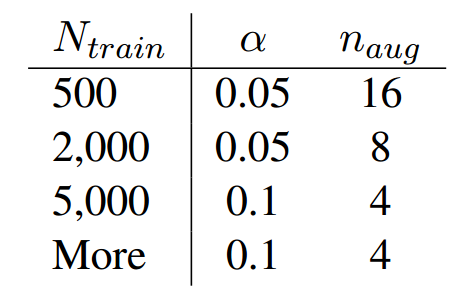1
2
3
4
5
6
7
8
9
10
11
12
13
14
15
16
17
18
19
20
21
22
23
24
25
26
27
28
29
30
31
32
33
34
35
36
37
38
39
40
41
42
43
44
45
46
47
48
49
50
51
52
53
54
55
56
57
58
59
60
61
62
63
64
65
66
67
68
69
70
71
72
73
74
75
76
77
78
79
80
81
82
83
84
85
86
87
88
89
90
91
92
93
94
95
96
97
98
99
100
101
102
103
104
105
106
107
108
109
110
111
112
113
114
115
116
117
118
119
120
121
122
123
124
125
126
127
128
129
130
131
132
133
134
135
136
137
138
139
140
141
142
143
144
145
146
147
148
149
150
151
152
153
154
155
156
157
158
159
160
161
162
163
164
165
166
167
168
169
170
171
172
173
174
175
176
177
178
179
180
181
182
183
184
185
186
187
188
189
190
191
192
193
| import pickle
import pandas as pd
import matplotlib.pyplot as plt
from sklearn.utils import shuffle
import numpy as np
import random
import nltk
from nltk.corpus import wordnet
from nltk.corpus import stopwords
nltk.download('stopwords')
nltk.download('wordnet')
nltk.download('omw-1.4')
def plot_graphs(history, metric):
plt.plot(history.history[metric])
plt.plot(history.history['val_'+metric], '')
plt.xlabel("Epochs")
plt.ylabel(metric)
plt.legend([metric, 'val_'+metric])
def eda_SR(originalSentence, n):
"""
Paper Methodology -> Randomly choose n words from the sentence that are not stop words.
Replace each of these words with one of its synonyms chosen at random.
originalSentence -> The sentence on which EDA is to be applied
n -> The number of words to be chosen for random synonym replacement
"""
stops = set(stopwords.words('english'))
splitSentence = list(originalSentence.split(" "))
splitSentenceCopy = splitSentence.copy()
ls_nonStopWordIndexes = []
for i in range(len(splitSentence)):
if splitSentence[i].lower() not in stops:
ls_nonStopWordIndexes.append(i)
if (n > len(ls_nonStopWordIndexes)):
raise Exception(
"The number of replacements exceeds the number of non stop word words")
for i in range(n):
indexChosen = random.choice(ls_nonStopWordIndexes)
ls_nonStopWordIndexes.remove(indexChosen)
synonyms = []
originalWord = splitSentenceCopy[indexChosen]
for synset in wordnet.synsets(originalWord):
for lemma in synset.lemmas():
if lemma.name() != originalWord:
synonyms.append(lemma.name())
if (synonyms == []):
continue
splitSentence[indexChosen] = random.choice(synonyms).replace('_', ' ')
return " ".join(splitSentence)
def eda_RI(originalSentence, n):
"""
Paper Methodology -> Find a random synonym of a random word in the sentence that is not a stop word.
Insert that synonym into a random position in the sentence. Do this n times
originalSentence -> The sentence on which EDA is to be applied
n -> The number of times the process has to be repeated
"""
stops = set(stopwords.words('english'))
splitSentence = list(originalSentence.split(" "))
splitSentenceCopy = splitSentence.copy()
ls_nonStopWordIndexes = []
for i in range(len(splitSentence)):
if splitSentence[i].lower() not in stops:
ls_nonStopWordIndexes.append(i)
if (n > len(ls_nonStopWordIndexes)):
raise Exception("The number of replacements exceeds the number of non stop word words")
WordCount = len(splitSentence)
for i in range(n):
indexChosen = random.choice(ls_nonStopWordIndexes)
ls_nonStopWordIndexes.remove(indexChosen)
synonyms = []
originalWord = splitSentenceCopy[indexChosen]
for synset in wordnet.synsets(originalWord):
for lemma in synset.lemmas():
if lemma.name() != originalWord:
synonyms.append(lemma.name())
if (synonyms == []):
continue
splitSentence.insert(random.randint(0,WordCount-1), random.choice(synonyms).replace('_', ' '))
return " ".join(splitSentence)
def eda_RS(originalSentence, n):
"""
Paper Methodology -> Find a random synonym of a random word in the sentence that is not a stop word.
Insert that synonym into a random position in the sentence. Do this n times
originalSentence -> The sentence on which EDA is to be applied
n -> The number of times the process has to be repeated
"""
splitSentence = list(originalSentence.split(" "))
WordCount = len(splitSentence)
for i in range(n):
firstIndex = random.randint(0,WordCount-1)
secondIndex = random.randint(0,WordCount-1)
while (secondIndex == firstIndex and WordCount != 1):
secondIndex = random.randint(0,WordCount-1)
splitSentence[firstIndex], splitSentence[secondIndex] = splitSentence[secondIndex], splitSentence[firstIndex]
return " ".join(splitSentence)
def eda_RD(originalSentence, p):
"""
Paper Methodology -> Randomly remove each word in the sentence with probability p.
originalSentence -> The sentence on which EDA is to be applied
p -> Probability of a Word Being Removed
"""
og = originalSentence
if (p == 1):
raise Exception("Always an Empty String Will Be Returned")
if (p > 1 or p < 0):
raise Exception("Improper Probability Value")
splitSentence = list(originalSentence.split(" "))
lsIndexesRemoved = []
WordCount = len(splitSentence)
for i in range(WordCount):
randomDraw = random.random()
if randomDraw <= p:
lsIndexesRemoved.append(i)
lsRetainingWords = []
for i in range(len(splitSentence)):
if i not in lsIndexesRemoved:
lsRetainingWords.append(splitSentence[i])
if (lsRetainingWords == []):
return og
return " ".join(lsRetainingWords)
def eda(sentence, alpha_sr=0.1, alpha_ri=0.1, alpha_rs=0.1, p_rd=0.1, num_aug=9):
words = list(sentence.split())
num_words = len(words)
augmented_sentences = []
num_new_per_technique = int(num_aug / 4) + 1
n_sr = max(1, int(alpha_sr * num_words))
n_ri = max(1, int(alpha_ri * num_words))
n_rs = max(1, int(alpha_rs * num_words))
for _ in range(num_new_per_technique):
a_sentence = eda_SR(sentence, n_sr)
augmented_sentences.append(a_sentence)
for _ in range(num_new_per_technique):
a_sentence = eda_RI(sentence, n_ri)
augmented_sentences.append(a_sentence)
for _ in range(num_new_per_technique):
a_sentence = eda_RS(sentence, n_rs)
augmented_sentences.append(a_sentence)
for _ in range(num_new_per_technique):
a_sentence = eda_RD(sentence, p_rd)
augmented_sentences.append(a_sentence)
shuffle(augmented_sentences)
if num_aug >= 1:
augmented_sentences = augmented_sentences[:num_aug]
else:
keep_prob = num_aug / len(augmented_sentences)
augmented_sentences = [s for s in augmented_sentences if random.uniform(0, 1) < keep_prob]
augmented_sentences.append(sentence)
return augmented_sentences
def get_eda_df(sentences, alpha=0.1, num_avg=9):
results = []
for i, sents in enumerate(sentences):
augmented_sentences = eda(sents, alpha_sr=alpha, alpha_ri=alpha, alpha_rs=alpha, p_rd=alpha,
num_aug=num_avg)
results.append(augmented_sentences)
return sum(results, [])
if __name__ == '__main__':
seg_list = "microcontroller coprocessor bmc boot up device enabled asserted microcontroller bmc boot up device enabled asserted processor cpu1 status presence detected asserted processor cpu0 status presence detected asserted system acpi power state acpi pwr status ss one state soft off asserted button button pressed power button pressed asserted system acpi power state acpi pwr status sg one state working asserted power supply ps1 status presence detected asserted power supply ps2 status presence detected asserted"
augmented_sentences = eda(seg_list, alpha_sr=0.05, alpha_ri=0.05, alpha_rs=0.05, p_rd=0.05, num_aug=9)
print(len(augmented_sentences ))
print(augmented_sentences)
|


